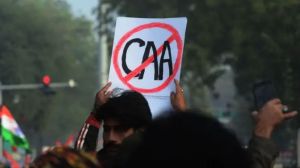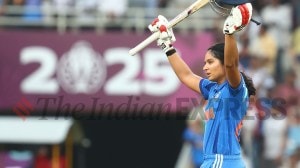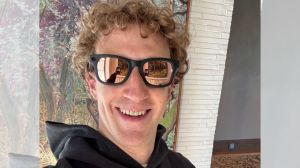Soundbites on Muslims filled the air
The community was assiduously wooed during a crucial election but where is the reform?

Election time in Uttar Pradesh has seen political parties of all hues flaunting the minority/Muslim card once again. As a Muslim, it is infuriating to see the community being so shoddily pushed around as if it does not realise the hollowness of these promises. Populist political rhetoric, devoid of sincerity and shallow in its claims, has once again made the ‘Muslim question’ central to public discourse. It is no doubt significant that the shocking findings of the Sachar Committee did not trigger the kind of political interest in the community that the UP election campaign has been able to do. They were also not followed up by any sustained discussion on Muslims, either in the media or within the high portals of government. And this despite the fact that newspapers like The Indian Express gave publicity to the report by serialising its findings in a remarkably well-produced series: The Missing Muslim.
But come election time in UP and the Muslims are back as a hot topic of discussion. The Muslim welfare tokenism of the UPA is disturbing to the community more than that of any other party. Both Sonia Gandhi and the prime minister have been mentioning with increasing frequency their earnest desire to improve the lot of religious minorities. Given the fact that their government has been in power for nearly three years, one would like to know what changes they have introduced for minority improvement? Surely with the Central government in their hands, they have access to both policy decisions and resources — so they have really no excuse. Isn’t it pathetic that even despite the shocking statistics of the government-instituted Sachar Committee, not even a quick fix response has been forthcoming. Again, the reports of the Minority Commission have brought to light the pathetic state of the Muslims in Gujarat’s relief camps, and their terrified existence in other parts of the state. How has that changed with the UPA in power? It is true that Gujarat has a BJP government but surely there are ways in which the Centre, if it has the will, can arm-twist the state into setting its human rights record straight.
The UPA minority welfare measures have been limited to token gestures: Haj subsidies, the promotion of a few favoured Muslim intellectuals; grants to some Delhi-centered institutions which have a Muslim tag; the politics of iftars; the promotion of Urdu, and so on. Why has the issue of communal riots and the formulating of stringent laws that make life difficult for the rioters, and less traumatic for the victims, not been on the agenda of this government? Why have we not heard the government initiate discussion about improving Muslim representation in the army, educational institutions,etc, with the same fervour that it has demonstrated for OBC representation.
You talk to any Muslim today of any class and they will say that despite all these realisations they will vote for the UPA and the Congress because at least they ensure physical safety for us, our families and businesses. At least they will ensure there are no riots. Isn’t it a sad commentary on the state of the nation when, 60 years after independence, what distinguishes one political party from another for the Muslim is the guarantee of protection to his life and property? As a supporter of the UPA, I feel saddened. I wonder if our friends within the UPA share my sadness and embarrassment?
The writer is professor of history, Jamia Millia Islamia, New Delhi



- 01
- 02
- 03
- 04
- 05




























